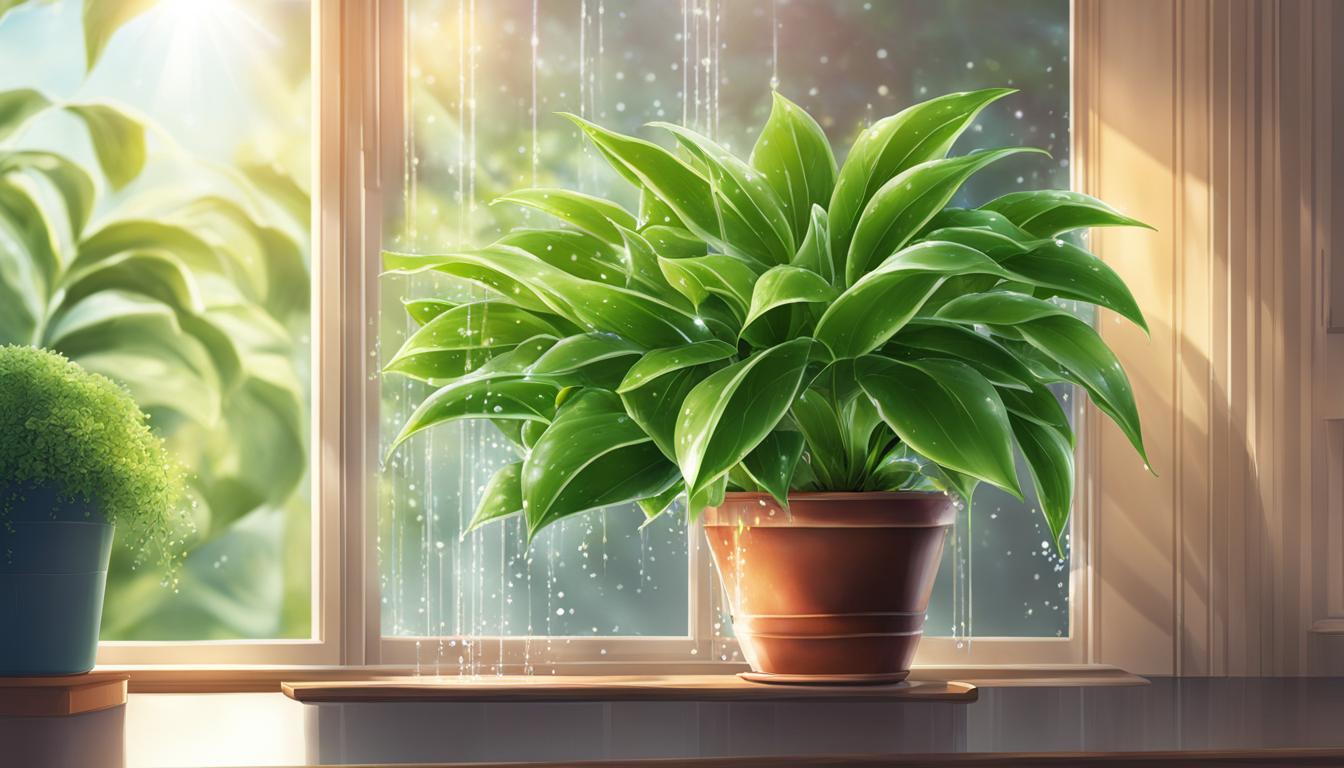
Indoor plants require specific care to enhance their vitality and maintain their health. By implementing certain strategies and techniques, you can optimize the growth and well-being of your indoor plants.
In this article, I will explore various ways to enhance indoor plant vitality, including the use of Magnation water systems and the selection of appropriate indoor plant varieties.
With proper care and attention, you can ensure that your indoor plants thrive and bring life to your living space.
Key Takeaways:
- Implementing strategies and techniques can enhance indoor plant vitality.
- Magnation water systems can improve root growth and vitality.
- Choosing the right indoor plant varieties is crucial for plant health.
- Proper watering, soil care, and creating an optimal environment are important for enhancing vitality.
- Indoor plants offer multiple benefits for mental well-being and overall health.
How Magnation Water Systems Improve Indoor Plant Vitality
Indoor plants require proper care and attention to thrive and maintain their vitality. One effective way to enhance their growth and health is by utilizing Magnation water systems. These innovative systems have been scientifically proven to boost indoor plant growth and overall vitality.
Magnation water systems work by improving root growth and nutrient absorption in indoor plants. The technology used in these systems reduces the surface tension and viscosity of water, allowing for better soil penetration and uniform distribution of water and nutrients. This ensures that each plant receives the necessary hydration and nourishment to thrive.
Additionally, Magnation water systems promote moisture retention in the soil, preventing over-drying and under-watering of plants. The improved nutrient delivery ensures that plants receive the essential elements they need for optimal growth.
As a result, indoor plants treated with Magnation water systems exhibit healthier foliage, increased root development, and enhanced overall vitality.
Benefits of Magnation Water Systems for Indoor Plants
| Benefits | Description |
|---|---|
| Improved root growth | Enhanced root development and increased nutrient absorption |
| Uniform water distribution | Evenly distributes water and nutrients to each plant |
| Moisture retention | Prevents over-drying and under-watering of plants |
| Enhanced nutrient delivery | Optimizes delivery of essential nutrients for healthy growth |
| Healthier foliage | Results in vibrant, lush foliage and improved overall vitality |
With the use of Magnation water systems, indoor plant enthusiasts can ensure that their plants receive the utmost care and attention necessary for vigorous growth and vitality.
Selecting the Right Indoor Plant Varieties
Choosing the right indoor plant varieties is essential for enhancing their vitality and ensuring their overall health. Several factors should be considered when selecting indoor plants, including their light requirements, space constraints, and watering and maintenance capabilities.
Light Requirements
One crucial aspect to consider when selecting indoor plant varieties is their light requirements. Different plants have different light preferences, ranging from low light to bright, direct sunlight.
Assess the natural light available in your home and match plant types accordingly. For example, if you have a room with limited sunlight, opt for plants that thrive in low light conditions, such as Snake Plants or ZZ Plants. Conversely, if you have a sunny window, consider plants like Succulents or Fiddle Leaf Figs that require bright, indirect light.
Space Constraints
Another factor to consider when selecting indoor plants is the space constraints in your home. Evaluate the available space and choose plants that fit comfortably within it. Some plants, such as trailing Pothos or small African Violets, are great choices for smaller spaces like countertops or shelves.
On the other hand, larger plants like Peace Lilies or Monstera Deliciosas can be the focal point of a room with ample space. Be mindful of the growth potential of the plants you choose, as they may require repotting or pruning over time.
Watering and Maintenance
Lastly, consider your watering routine and maintenance capabilities when selecting indoor plant varieties. Some plants require more frequent watering, while others prefer drier conditions. If you tend to forget or have a busy schedule, choose plants that are more forgiving, such as Snake Plants or Pothos, which can tolerate occasional neglect.
On the other hand, if you enjoy a hands-on approach and have the time to care for them, plants like Orchids or Ferns can be rewarding options that require more specific care.
| Plant Variety | Light Requirements | Space Requirements | Watering and Maintenance |
|---|---|---|---|
| Snake Plant | Low to moderate light | Compact, suitable for small spaces | Low-maintenance, tolerate infrequent watering |
| Monstera Deliciosa | Bright, indirect light | Large, needs ample space to grow | Regular watering, higher maintenance |
| Pothos | Low to moderate light | Trailing, suitable for small spaces | Tolerates irregular watering |
| Fiddle Leaf Fig | Bright, indirect light | Large, needs ample space to grow | Regular watering, moderate maintenance |
By considering the light requirements, space constraints, and your own watering and maintenance capabilities, you can select indoor plant varieties that will thrive in your home and enhance their overall health and vitality.
Enhancing Indoor Plant Vitality through Proper Watering and Soil Care
Proper watering and soil care are essential for maintaining the health and vitality of indoor plants. Understanding the water requirements of different plants and developing a watering routine that meets their specific needs is crucial. Overwatering or underwatering can have detrimental effects on the growth and overall well-being of indoor plants.
Watering Indoor Plants
When watering indoor plants, it is important to strike a balance between providing enough moisture for the plants to thrive and avoiding waterlogged conditions that can lead to root rot. One way to ensure proper watering is by allowing the top inch of the soil to dry out before watering again.
This can prevent overwatering and promote healthy root growth. Additionally, using a moisture meter can help determine the moisture levels in the soil and guide you in determining when to water your indoor plants.
Another option for maintaining optimal soil moisture levels is to invest in self-watering systems. These systems regulate the amount of water delivered to the plants, preventing the risk of overwatering or underwatering.
Self-watering systems can be particularly beneficial for individuals who may have difficulty monitoring and maintaining consistent watering routines.
Soil Care for Indoor Plants
Choosing the right potting mix is essential for indoor plant vitality. Opt for well-draining potting mixes that provide adequate aeration for the roots. Additionally, consider the nutritional needs of your indoor plants and select a potting mix that is enriched with organic matter or slow-release fertilizers to provide essential nutrients over time.
In addition to selecting the right potting mix, proper soil care is crucial for the overall health of indoor plants. Regular fertilization can replenish nutrients that may be depleted over time, promoting healthy growth and vibrant foliage.
Follow the instructions on the fertilizer packaging and avoid over-fertilizing, as this can lead to nutrient imbalances and burn the roots of the plants.
| Watering Tips for Indoor Plants | Soil Care Tips for Indoor Plants |
|---|---|
|
|
By implementing proper watering techniques and prioritizing soil care, you can ensure the vitality and longevity of your indoor plants. Remember to pay attention to the specific water and soil needs of each plant species and adjust your care routine accordingly. With the right watering and soil care practices, your indoor plants will thrive and bring beauty and freshness to your living space.
Creating an Optimal Environment for Indoor Plants
Creating the right environment is essential for enhancing the vitality of your indoor plants. Multiple factors, such as light conditions, temperature, and humidity, play crucial roles in providing optimal conditions for your plants to thrive.
Light Conditions
Understanding the light preferences of your indoor plant varieties is essential for their overall health and growth. Different plants have varying requirements, ranging from low light levels to bright, direct sunlight. Assess the available natural light in your home and match it with the light requirements of your plants.
Consider placing low light plants in areas with indirect light and reserving bright spots near windows for those that need more sunlight. This way, you can ensure that your indoor plants receive the necessary light to photosynthesize and thrive.
Temperature and Humidity
Temperature and humidity levels also impact the well-being of indoor plants. Most houseplants prefer temperatures between 60°F and 75°F (15°C – 24°C).
It’s essential to research the specific temperature preferences of your plant varieties. Adjust the temperature in your home accordingly, avoiding extremes that can cause stress or damage to your plants.
In addition to temperature, maintaining the right humidity level is vital. Some plants thrive in higher humidity, while others prefer drier conditions. Use a hygrometer to monitor humidity levels in your home and make adjustments as needed.
You can increase humidity by using a humidifier or placing a tray of water near your plants. Conversely, if the air is too humid, consider using a dehumidifier or improving ventilation to prevent excess moisture and potential plant diseases.
By creating an optimal environment with the right light conditions, temperature, and humidity, you can ensure the vitality and well-being of your indoor plants. Understanding and meeting the specific needs of your plant varieties will contribute to their overall health, growth, and visual appeal.
| Plant Variety | Light Requirements | Temperature Range | Recommended Humidity Level |
|---|---|---|---|
| Snake Plant | Low to medium indirect light | 60°F – 85°F (15°C – 29°C) | 40% – 70% |
| Spider Plant | Medium to bright indirect light | 55°F – 75°F (13°C – 24°C) | 40% – 60% |
| Peace Lily | Medium to bright indirect light | 65°F – 85°F (18°C – 29°C) | 40% – 60% |
The benefits of indoor plants for mental well-being
Indoor plants have been found to have a positive impact on mental well-being. Studies have shown that having plants in your home or office can help reduce stress levels and promote relaxation. The presence of greenery has a calming effect on the mind, helping to create a soothing and tranquil environment.
The visual appeal of indoor plants can also improve mood and enhance overall well-being. Additionally, being around plants has been associated with improved attention and concentration, making them beneficial for productivity in work or study environments.
Indoor plants can also provide therapeutic benefits for individuals experiencing mental health conditions. The act of caring for plants, such as watering and pruning, can serve as a form of mindfulness and stress relief.
The process of nurturing and watching plants grow can be fulfilling and rewarding, helping to reduce symptoms of anxiety and depression. Indoor plants can create a sense of purpose and responsibility, offering individuals a sense of control and accomplishment.
Furthermore, indoor plants have the ability to improve air quality, which can have a direct impact on mental well-being. Plants naturally remove pollutants from the air, releasing oxygen and increasing humidity.
This can help reduce the presence of harmful substances in the indoor environment, such as volatile organic compounds (VOCs) and airborne allergens. Breathing in cleaner air can promote better respiratory health and contribute to overall feelings of well-being.
Indoor plants and productivity
In addition to promoting mental well-being, indoor plants can also boost productivity. Research has shown that the presence of plants in the workplace can enhance cognitive function and improve concentration. The visual stimulation provided by plants can help reduce mental fatigue and increase focus, leading to improved work performance.
Indoor plants can also improve job satisfaction and morale among employees. Studies have found that the inclusion of greenery in work environments can increase job satisfaction and reduce feelings of stress and burnout.
The aesthetic appeal of plants can create a more pleasant and aesthetically pleasing workspace, contributing to a positive work atmosphere.
Overall, incorporating indoor plants into indoor spaces can provide numerous benefits for mental well-being and productivity. Whether it’s reducing stress levels, improving attention and concentration, or promoting a healthier and more pleasant environment, indoor plants have the potential to create a positive impact on our overall well-being.
Considerations for Safe Indoor Gardening
When engaging in indoor gardening, it is important to be mindful of potential risks associated with certain plants. Some indoor plants can be toxic to children and pets, posing a hazard if ingested.
Therefore, it is crucial to research the safety of various plant varieties before bringing them into your home. This will help ensure a safe environment for everyone.
In addition to toxicity concerns, individuals with allergies or asthma should be cautious when selecting indoor plants. Certain plants can release pollen or other allergenic substances that may trigger allergic reactions or worsen existing symptoms. It is advisable for those with allergies or asthma to choose plants with low allergenic potential or opt for alternative indoor decor options.
Regularly inspecting your indoor plants for pest infestations is also essential for maintaining a healthy environment. Pests like aphids, spider mites, and fungus gnats can damage plant health and cause further complications. Take proactive measures to prevent and address pest infestations, such as using organic insecticides or implementing natural pest control methods.
Common Toxic Indoor Plants
| Plant Name | Toxicity Level |
|---|---|
| Philodendron | Moderate |
| Pothos | Moderate |
| Dieffenbachia | Severe |
| Snake Plant | Low |
| Lily | High |
By being aware of potential risks and taking appropriate precautions, you can enjoy the benefits of indoor gardening while ensuring a safe and healthy environment for yourself, your family, and your pets.
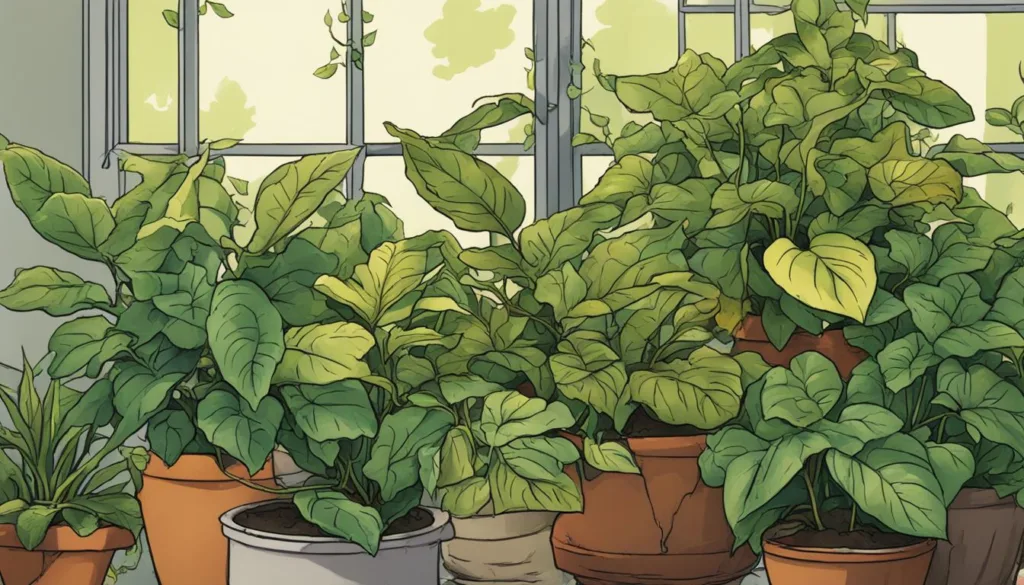
Conclusion: Create a healthier and happier indoor environment with indoor plants
Indoor plants have the remarkable ability to transform your living space into a haven of wellness and happiness. By implementing the strategies discussed in this article, you can optimize the well-being of your indoor plants and enjoy the benefits they bring to your home.
From reducing stress levels to boosting productivity, indoor plants have a profound impact on our mental and emotional well-being.
Studies have shown that the presence of indoor plants can improve attention and concentration, while also providing therapeutic benefits for those facing mental health challenges. Creating a greener environment with indoor plants can truly enhance our overall quality of life.
But the benefits don’t end there. Indoor plants also contribute to better air quality, as they naturally filter and purify the air around us. This can help reduce the presence of harmful pollutants and create a healthier indoor environment for you and your loved ones.
So, why not bring the beauty and vitality of indoor plants into your home? With the right care and attention, you can create a space that not only looks stunning, but also promotes improved well-being.
Embrace the power of indoor gardening and unlock the numerous benefits it offers for a healthier and happier indoor environment.
FAQ
How do Magnation water systems improve indoor plant vitality?
Magnation water systems enhance root growth and plant health by improving soil penetration, uniform water distribution, moisture retention, and nutrient delivery. They decrease water surface tension and viscosity, maximizing flow and nutrient absorption by the plants.
How do I select the right indoor plant varieties?
Consider the light requirements and available natural light in your home. Match plant types with the available light conditions. Evaluate space constraints and choose plants that fit comfortably. Select plant varieties that align with your watering routine and maintenance capabilities.
How can I enhance indoor plant vitality through watering and soil care?
Understand the water requirements of different plants and develop a watering routine that meets their needs. Consider self-watering systems for optimal soil moisture levels. Choose the right potting mix and provide regular fertilization and proper drainage for healthy plants.
How do I create an optimal environment for indoor plants?
Understand the light preferences of different plant species and match them to available light conditions. Consider temperature and humidity preferences and create microenvironments within your home. Strategically place indoor plants to enhance visual appeal and overall well-being.
What are the benefits of indoor plants for mental well-being?
Research suggests that indoor plants can reduce stress levels, improve attention and concentration, and provide therapeutic benefits for mental health conditions. They can also boost productivity, creativity, job satisfaction, and improve air quality.
What considerations should I keep in mind for safe indoor gardening?
Some indoor plants may be toxic to children and pets, so research plant safety before bringing them home. Individuals with allergies or asthma should be mindful of plants that may trigger symptoms. Regularly check for pests and prevent mold or fungi growth.
How can indoor plants create a healthier and happier indoor environment?
By implementing strategies like using Magnation water systems, selecting the right plant varieties, providing proper care and maintenance, and creating an optimal environment, you can enhance the vitality and well-being of your indoor plants. This can reduce stress, boost productivity, improve air quality, and contribute to an enjoyable living space.

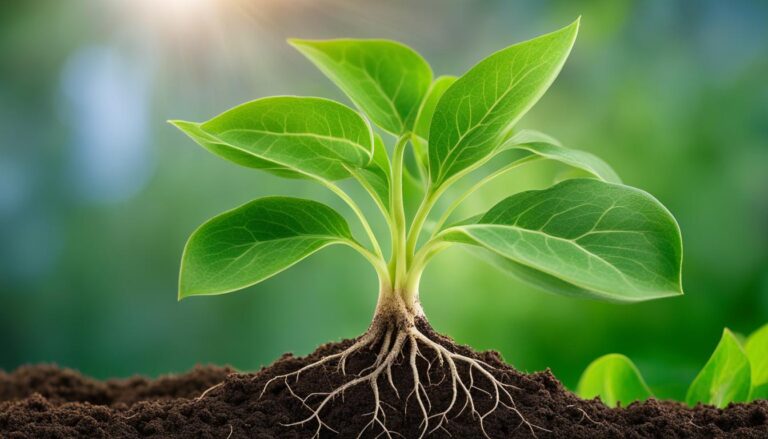
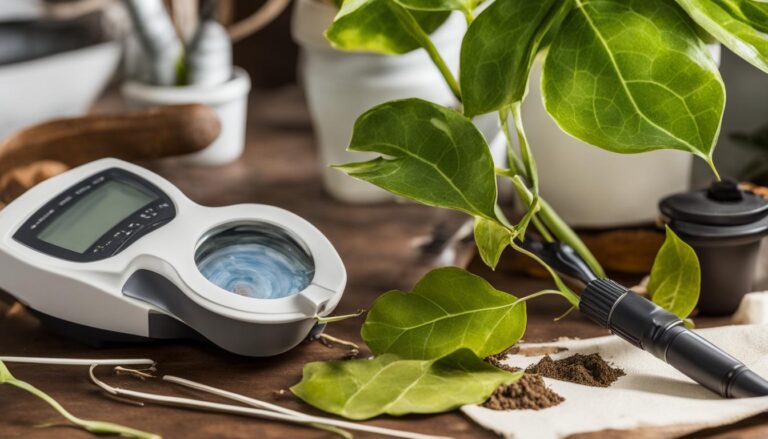

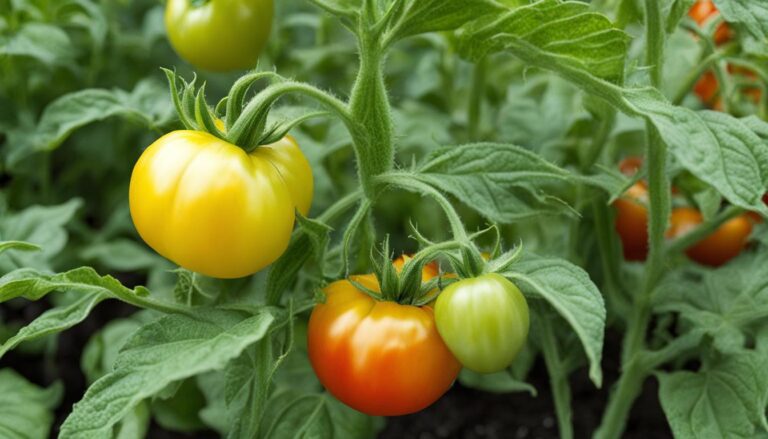


2 Comments
Comments are closed.